One Flew Over the Cuckoo’s Nest (1975)
“I’d like to keep him on the ward. I think we can help him.”
|
Synopsis: |
|
Genres, Themes, Actors, and Directors:
Response to Peary’s Review: In Alternate Oscars, Peary gives the Best Picture award to John Huston’s The Man Who Would Be King instead, but preserves the Best Actor award for Nicholson, noting: “Never known for low-key performances, Nicholson was perfectly cast as this man who pretends to be mad and who, if we equate rebellion with abnormality, may in fact be so” given that he “certainly fits in better with the mental patients than with those who run the asylum.” Peary writes: “How Ratched detests this man with the lunatic grin and laugh, who sees through her, who makes her blush with his crude language…, who makes himself a thorn in her side but pretends innocence…” Despite this, Peary argues McMurphy “is probably Nicholson’s sweetest, most caring character” given that “fighting Ratched for the other patients’ minds and souls, he manages to improve their outlooks on life.” Unfortunately, he fails to see Ratched “for the dangerous witch she is. Only too late does he realize that Ratched will do anything to maintain authority in her world.” Balancing out Peary’s perspective is DVD Savant, who asserts that the film’s very concept is problematic because “from the evidence we see McMurphy is the author of all his own problems and a genuine menace to society”, someone “who would bring down disaster almost anywhere he went”. DVD Savant refers to him as a “thoughtless rebel” who “goes up against Nurse Ratched to flatter his own ego” and actually puts the patients at risk during the “unscheduled day trip on the fishing boat”. With that said, he’s no fan of Ratched either, instead sharing how “Louise Fletcher’s layered performance lets us know that the McMurphy-Ratched personality clash brings out the worst in both of them”: “McMurphy becomes more reckless and cocky, while Ratched harbors a powerful resentment behind her veneer of professionalism” and “takes out her rage on the weaker of the patients”. Ultimately, this is a brutal cat-and-mouse tale, with institutional power winning out, but not before we are shown both sides of the picture: while the men find solace and comfort in their constraining environment (and taking anarchic risks isn’t necessarily the right or best course of action), they have at least been taught to question, laugh, and speak up. Redeeming Qualities and Moments:
Must See? Categories
(Listed in 1001 Movies You Must See Before You Die) Links: |
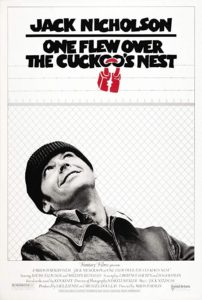
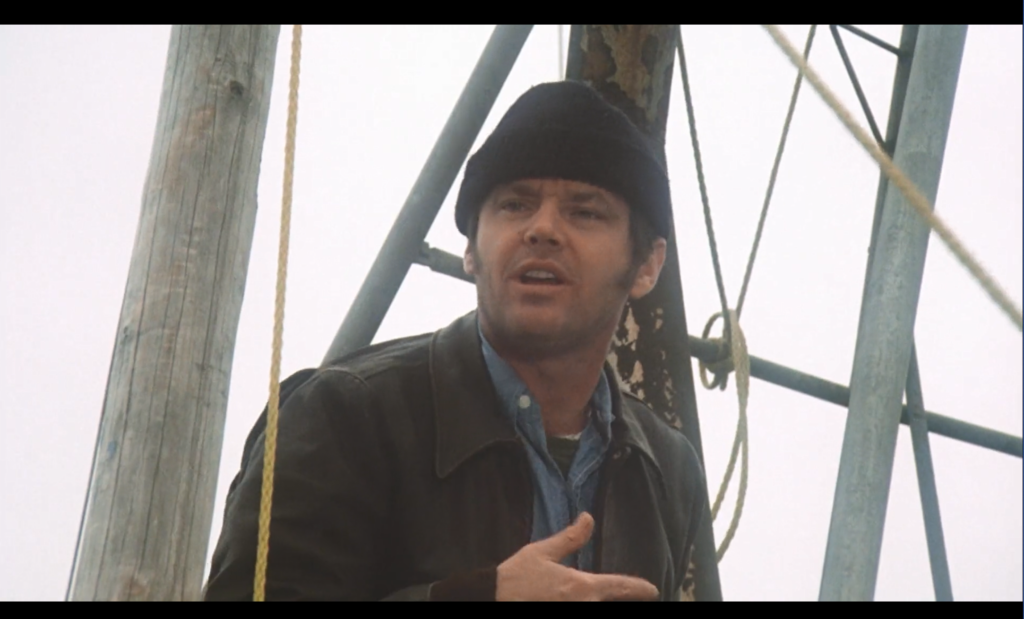
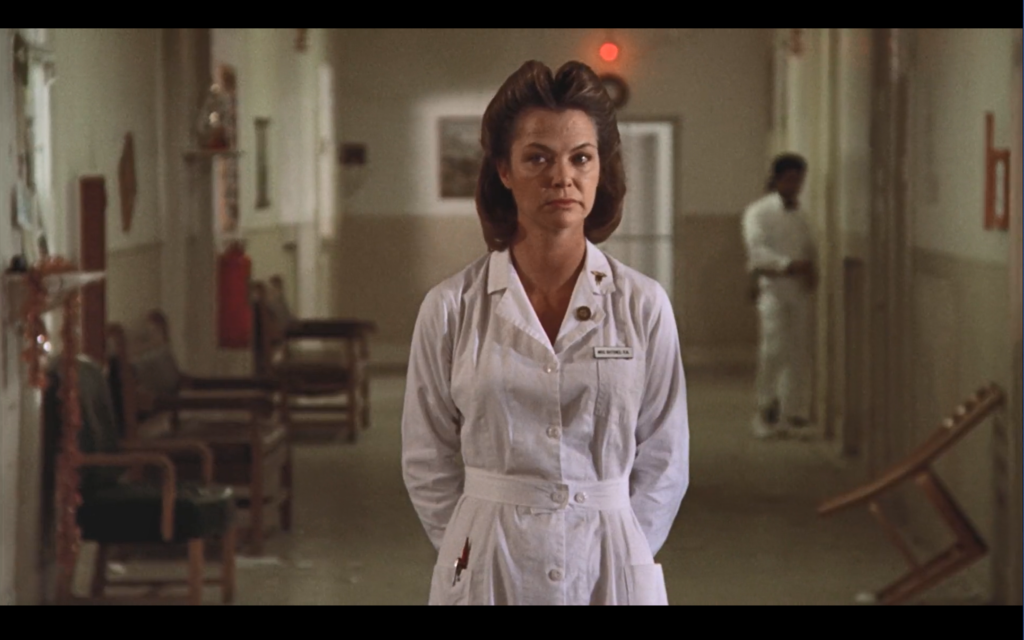
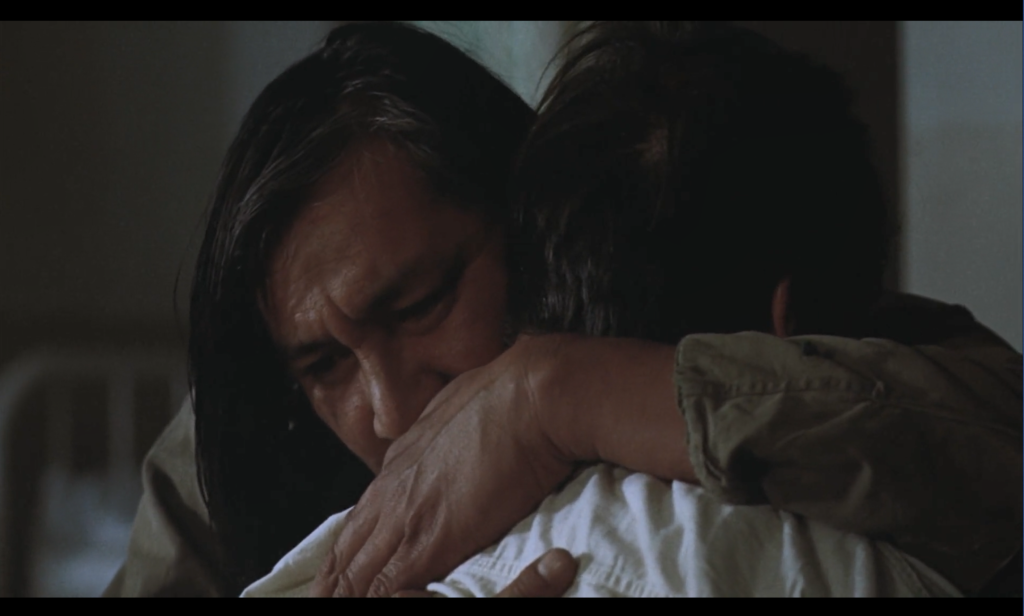
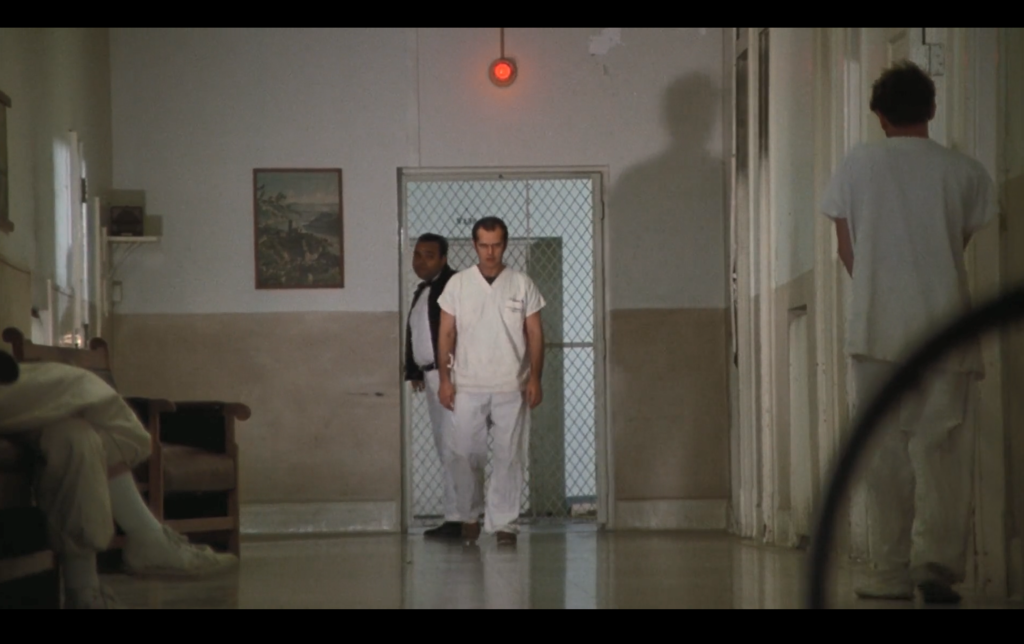
2 thoughts on “One Flew Over the Cuckoo’s Nest (1975)”
I haven’t seen this one in over 30 years but I think it’s fair to say that it remains a must see film as a classic, prestigious star vehicle that received (and still does) almost unanimous critical and public praise.
I liked it when I saw it, but that was on HBO circa 1980 when I lived in the USA.
A once-must – for its premise, the performances and Forman’s direction.
This is the kind of film that doesn’t (to me, anyway) particularly benefit from repeat viewings – its point is so precise and it’s all detailed in such a black-and-white way that the viewer won’t really feel that anything’s been missed the first time out or that there are additional layers to explore again. It’s not likely that you’re going to forget the film’s power once you’ve seen it.
As well, it’s not an easy film to watch – and it’s ultimately rather depressing. I can’t imagine who would want to return to it – well, more than once, at any rate.
Side note: I once saw a stage production in which the person playing Nurse Ratched played her in a much more obvious way as a villain – without much (if any) of the ‘cool, distant’ approach that Fletcher displays. By comparison, I found that Fletcher’s choice in her portrait is much more effective.